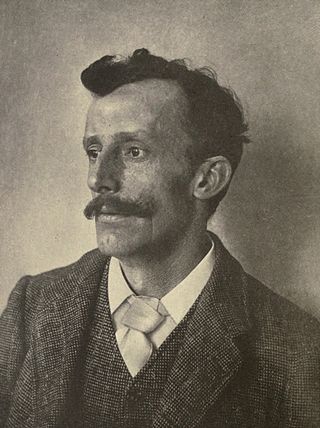
Frederic William Maitland was an English historian and jurist who is regarded as the modern father of English legal history. From 1884 until his death in 1906, he was reader in English law, then Downing Professor of the Laws of England at the University of Cambridge.
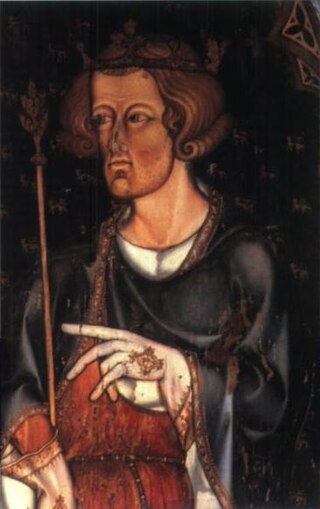
The Statutes of Mortmain were two enactments, in 1279 and 1290, passed in the reign of Edward I of England, aimed at preserving the kingdom's revenues by preventing land from passing into the possession of the Church. Possession of property by a corporation such as the Church was known as mortmain, literally "dead hand". In medieval England, feudal estates generated taxes for the King, principally on the grant or inheritance of the estate. If an estate became owned by a religious corporation which could never die, could never attain majority, and could never be attainted for treason, these taxes never became payable. It was akin to the estates being owned by the dead, hence the term.
In tort law, detinue is an action to recover for the wrongful taking of personal property. It is initiated by an individual who claims to have a greater right to their immediate possession than the current possessor. For an action in detinue to succeed, a claimant must first prove that he had better right to possession of the chattel than the defendant, and second, that the defendant refused to return the chattel once demanded by the claimant.
Fleta is the name of an early treatise on the common law of England. It was written in Latin with the sub-title seu Commentarius juris Anglicani. The anonymous author of the book is sometimes referred to as "Fleta", although this is not in fact a person's name. The book acquired its common title because its preface contains a remark that it could be called "Fleta" because it was written in "Fleta"; however, the meaning of this comment is unclear.
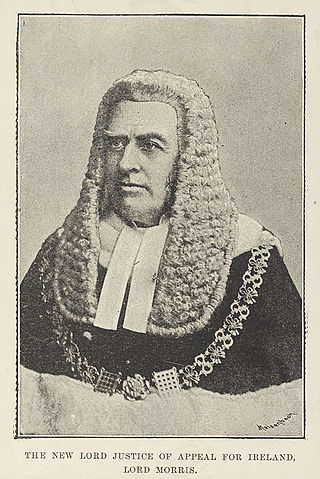
The Attorney-General for Ireland was an Irish and then United Kingdom government office-holder. He was senior in rank to the Solicitor-General for Ireland: both advised the Crown on Irish legal matters. With the establishment of the Irish Free State in 1922, the duties of the Attorney-General and Solicitor-General for Ireland were taken over by the Attorney General of Ireland. The office of Solicitor-General for Ireland was abolished at the same time for reasons of economy. This led to repeated complaints from the first Attorney General of Ireland, Hugh Kennedy, about the "immense volume of work" which he was now forced to deal with single-handedly.

The Selden Society is a learned society and registered charity concerned with the study of English legal history. It functions primarily as a text publication society, but also undertakes other activities to promote scholarship within its sphere of interest. It is the only learned society wholly devoted to the topic of English legal history.
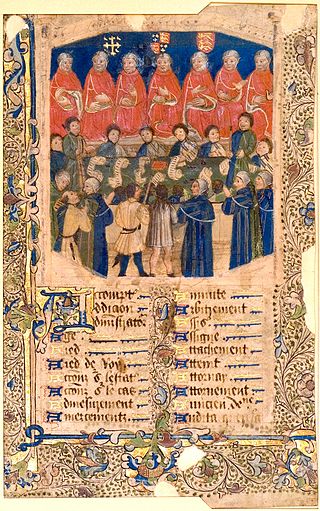
The Court of Common Pleas, or Common Bench, was a common law court in the English legal system that covered "common pleas"; actions between subject and subject, which did not concern the king. Created in the late 12th to early 13th century after splitting from the Exchequer of Pleas, the Common Pleas served as one of the central English courts for around 600 years. Authorised by Magna Carta to sit in a fixed location, the Common Pleas sat in Westminster Hall for its entire existence, joined by the Exchequer of Pleas and Court of King's Bench.
The Liber Septimus may refer to one of three Catholic canon law collections of quite different value from a legal standpoint which are known by this title.
The Exchequer of the Jews was a division of the Court of Exchequer at Westminster which recorded and regulated the taxes and the law-cases of the Jews in England and Wales. It operated from the late 1190s until the eventual expulsion of the Jews in 1290.

The Book of Fees is the colloquial title of a modern edition, transcript, rearrangement and enhancement of the medieval Liber Feodorum which is a listing of feudal landholdings or fief, compiled in about 1302, but from earlier records, for the use of the English Exchequer. Originally in two volumes of parchment, the Liber Feodorum is a collection of about 500 written brief notes made between 1198 and 1292 concerning fiefs held in capite or in-chief, that is to say directly from the Crown.
William Fleetwood was an English lawyer and politician. He was Member of Parliament for Marlborough in 1558, Lancaster in 1559 and 1567, and for the City of London several times between 1572 and 1592, but his most significant position was as Recorder of London from 1571 to 1591. A lawyer of the Middle Temple, he was a Queen's Serjeant in 1592.
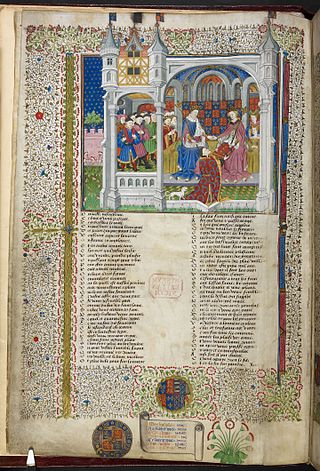
The Royal manuscripts are one of the "closed collections" of the British Library, consisting of some 2,000 manuscripts collected by the sovereigns of England in the "Old Royal Library" and given to the British Museum by George II in 1757. They are still catalogued with call numbers using the prefix "Royal" in the style "Royal MS 2. B. V". As a collection, the Royal manuscripts date back to Edward IV, though many earlier manuscripts were added to the collection before it was donated. Though the collection was therefore formed entirely after the invention of printing, luxury illuminated manuscripts continued to be commissioned by royalty in England as elsewhere until well into the 16th century. The collection was expanded under Henry VIII by confiscations in the Dissolution of the Monasteries and after the falls of Henry's ministers Cardinal Wolsey and Thomas Cromwell. Many older manuscripts were presented to monarchs as gifts; perhaps the most important manuscript in the collection, the Codex Alexandrinus, was presented to Charles I in recognition of the diplomatic efforts of his father James I to help the Eastern Orthodox churches under the rule of the Ottoman Empire. The date and means of entry into the collection can only be guessed at in many if not most cases. Now the collection is closed in the sense that no new items have been added to it since it was donated to the nation.
Ascuns novel cases de le ans et temps le Roy H. VIII., Edv. VI, and la Roygne Mary. Escrie ex la graund Abridgment, compose per Sir Robert Brooke, Chivaler, &c., la, disperse en les Titles; mes icy collect sub ans is the title of a collection of law reports, compiled by Richard Bellewe, of cases decided between approximately 1515 and 1558. They are reprinted in volume 73 of the English Reports.
Les Reports des divers resolutions et judgement donne par les de la Ley en le Temps del Reigne de Hen. VIII., Edw. VI., and Mar. Eliz. Jac. I. et Car. I. is the title of a collection of nominate reports, by Gulielme Bendloe, of cases decided between approximately 1531 and 1628. For the purpose of citation, their name may be abbreviated to "Benl". They are reprinted in volume 73 of the English Reports.
Les Reports des divers Cases en le Court del Common Bank, en le several Reignes de Hen. VII., Hen. VIII., Edw. VI., et Mar. et Eliz. is a collection of nominate reports, attributed to Gulielme Benloe and Gulielme Dalison, of cases decided by the Court of Common Pleas between approximately 1486 and 1580. For the purpose of citation, their name may be abbreviated to "Ben & D". They are reprinted in volume 123 of the English Reports.
Danby Pickering was an English legal writer.

The statutes of uncertain date, also known as statuta incerti temporis or Certain Statutes made during the Reigns of K. Henry 3. K. Edward 1. or K. Edward 2. but uncertain when or in which of their times, are English statutes dating from the reigns of Henry III, Edward I or Edward II, and frequently listed in the statute books at the end of the reign of Edward II.
The Record Commissions were a series of six Royal Commissions of Great Britain and the United Kingdom which sat between 1800 and 1837 to inquire into the custody and public accessibility of the state archives. The Commissioners' work paved the way for the establishment of the Public Record Office in 1838. The Commissioners were also responsible for publishing various historical records, including the Statutes of the Realm to 1714 and the Acts of Parliament of Scotland to 1707, as well as a number of important medieval records.









